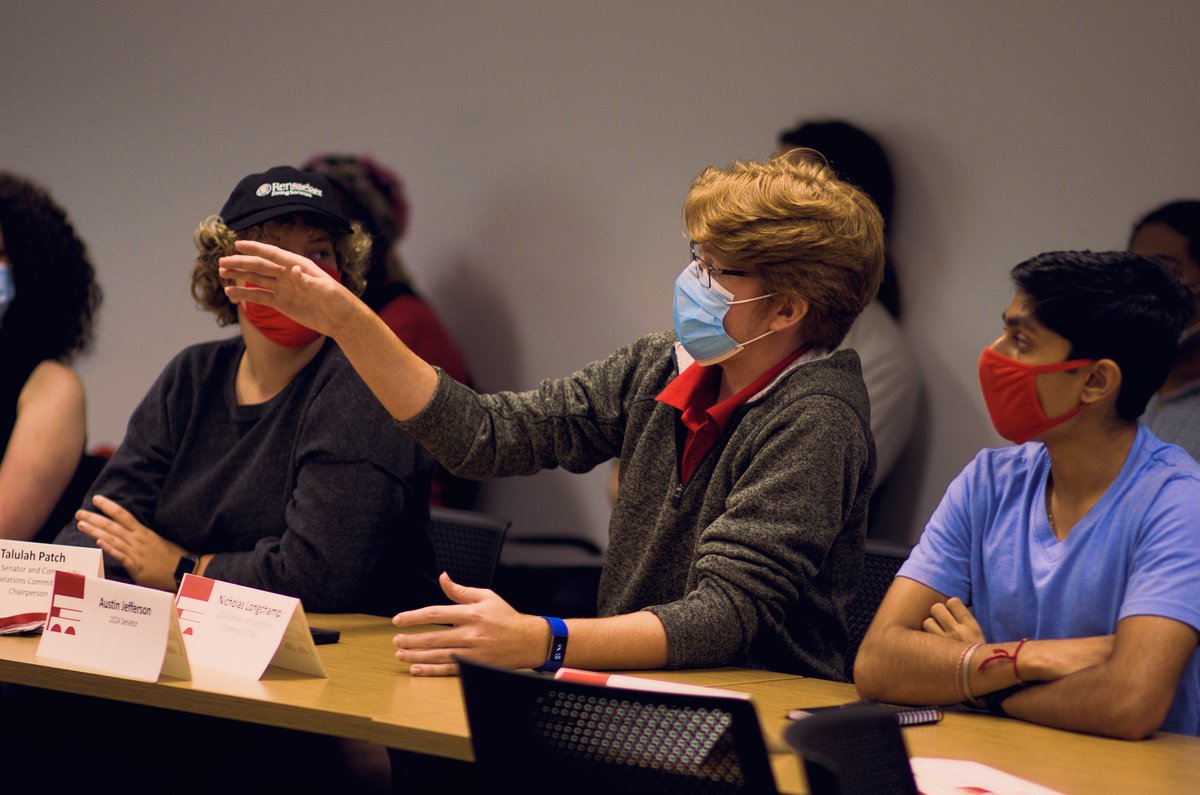Freshman Elections Handbook changes approved

The 52nd Student Senate approved changes to the Class of 2025 Freshman Elections Handbook on September 14. Elections Commission Chairperson Nick Longchamp ’24 presented the changes, which included a return to in-person submission of forms, in-person information sessions, and changes to the required number of nominations. The election itself will also be held in person. In addition, candidates will have to attend a student government meeting to be eligible. The motion for the changes was passed 14-4-0.
Campaigns started September 27 for the October 20 election. On the day of the election, in-person voting will be held at the Commons Dining Hall and at the Rensselaer Union from 8 am to 8 pm. Any first-year student can run for the position of Class of 2025 president, Class of 2025 vice president, Class of 2025 senator, or Class of 2025 representative. Contrary to previous rules which prevented Elections Commission members from running, the only member who is still unable to run is the Elections Commission Chairperson.
The onset of the COVID-19 pandemic caused many aspects of the elections process to move online. Largely, these are now being shifted back. All relevant forms must now be physical and submitted in person to the Union Administration Office. Candidates will also have to come to an in-person information session to learn about the election process.
Nominations themselves were also removed this past year. Previously, there were 125 nominations required for presidential, vice presidential, and senate candidates, and 50 for representatives. This year, to make it easier for candidates in still-distanced times, 50 nominations will be required for presidential and vice presidential candidates, 25 for senators, and 15 for representatives.
Eligibility requirements changed to require each candidate to attend at least one student government meeting before they can be on the ballot. This will be enforced by having a leading member in the relevant organization sign to certify that the candidate attended their meeting. Candidates running for class president, vice president, or representative must attend a class council meeting and get a signature from the undergraduate president or vice president. Candidates running for senator positions must attend a Senate meeting and get a signature from the grand marshal or vice grand marshal—or alternatively attend a Senate committee meeting and get a signature from the chairperson or co-chairperson. If running for both an executive position and a Senate position, they must attend one meeting from each category. The elections commission will notify candidates when the relevant meetings are happening.
The previous handbook required candidates to “not place tape over the tape securing signs or posters from other individuals or groups” while campaigning. Unfortunately, the experience of the Elections Commission was that disputes over this ruling could become petty, for example, reporting an opponent for having a small corner of tape overlapping their poster in a way which didn’t hide content. The specific clause was removed, but a note was kept asking candidates to “respect other candidates and their campaigns.”
The transition back to paper forms, which introduces a COVID-19 risk, made some nervous to pass the motion. Facilities and Services Committee Chairperson Alex Patterson ’23 expressed that in-person nominations should be “delayed until after the end of COVID guidelines at RPI.” Patterson suggested giving an option for online submission as well, saying it puts “people in harm’s way to have them throw an in-person campaign.” Graduate Council President Zach Barringer shared more concerns about the cleanliness of in-person campaigning. Barringer worried about whether the spread of COVID-19 could increase from the sharing of flyers and pens. Community Relations Committee Chairperson Talulah Patch ’24 expressed concern for students with medical or religious exemptions from the vaccine who are not able to go to sports or other campus events and would likewise have difficulty with the in-person requirements should they choose to run. They said this is unfair for students with medical issues.
While the motion passed, many members expressed lingering concerns about the safety of the changes. Longchamp said he would be lenient to anyone not comfortable with the in-person requirements and would include COVID safety discussions in the information sessions to make sure candidates could safely follow RPI restrictions and avoid spreading the virus. Longchamp will work with Patterson, Barringer, and Patch to make the campaigning process as safe and accommodating as possible while still encouraging conversations about student government. Longchamp added that there is a section in the handbook that gives the Elections Commission the power to aid those who are burdened with COVID-19, for example, if a student was in isolation.

 GM Week 2022
GM Week 2022
 COVID-19
COVID-19
 GM Week 2022
GM Week 2022